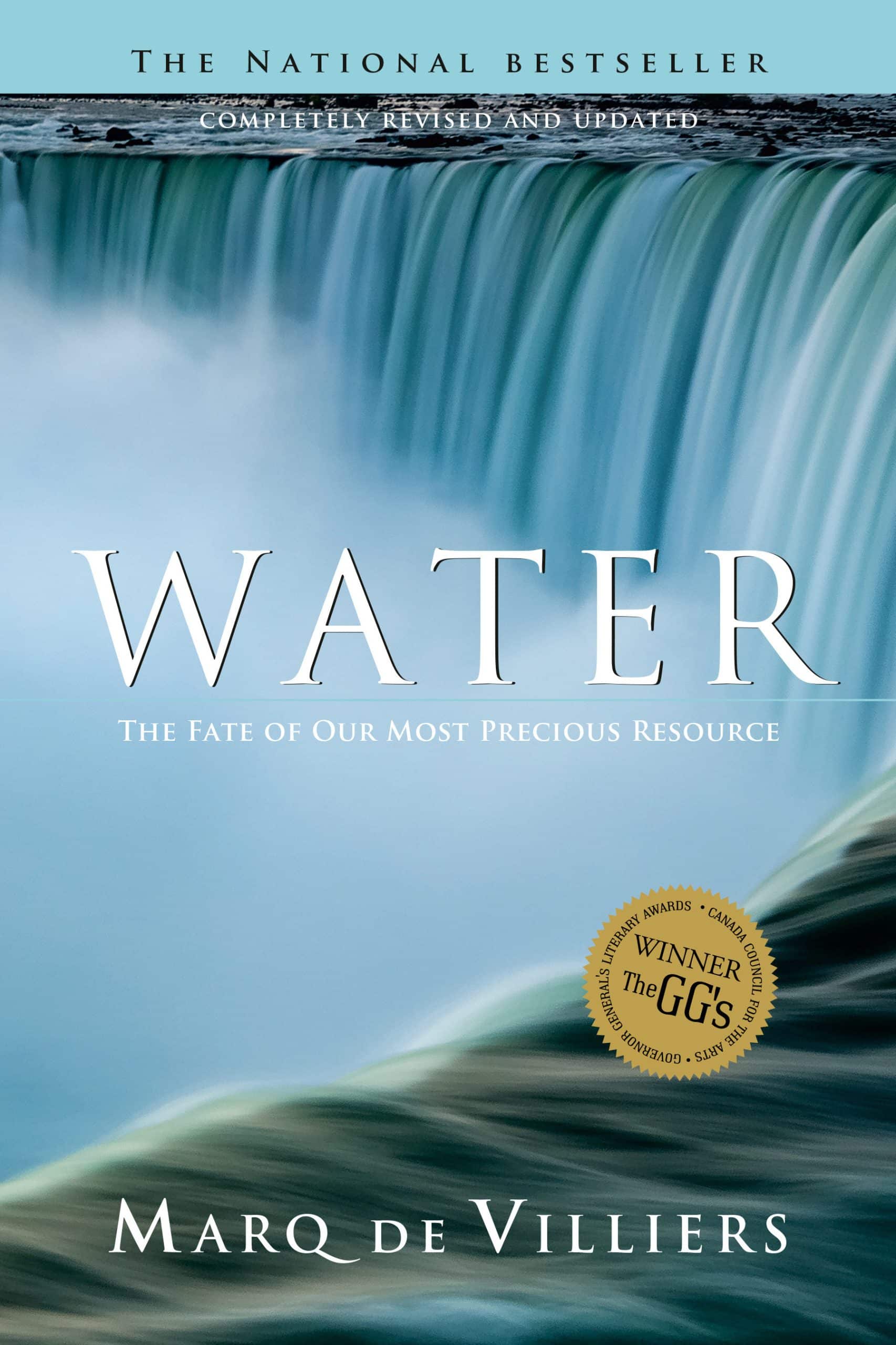Water (Revised edition): The Fate of Our Most Precious Resource
21.00 JOD
Please allow 2 – 5 weeks for delivery of this item
Description
WINNER OF THE GOVERNOR GENERAL’S LITERARY AWARD FOR NON-FICTION A brilliant and disturbing look at the most crucial ecological issue of the new century—now thoroughly revised and updated. Water—where it is, who owns it, how much we’ll need, and how to make sure we’ll have it—is quickly emerging as one of the most important ecological issues of the new century. First published in 1999, Water, Marq de Villiers’s brilliant look at the condition of water resources around the world, won a Governor General’s Literary Award and earned glowing praise from such respected figures as Maurice Strong, formerly of the Earth Council. In compelling and lucid prose, de Villiers describes the grim situations in arid regions—in the southwestern United States, southern Africa, Mexico, Egypt, Israel, India, and Asia—and makes it clear just how serious the ramifications can be. He outlines how water is being manipulated by technology, used as a political bargaining chip, or imperilled by ignorance—and what this could mean to us in the future and how it could shape the way we live. This new edition—completely updated—of what has become a standard book on a crucial subject makes for vitally important reading.
Additional information
| Weight | 0.51 kg |
|---|---|
| Dimensions | 3.05 × 15.32 × 22.79 cm |
| PubliCanadation City/Country | Canada |
| by | |
| Format | Paperback |
| Language | |
| Pages | 464 |
| Publisher | |
| Year Published | 2003-8-26 |
| Imprint | |
| ISBN 10 | 0771026412 |
| About The Author | Born in South Africa, MARQ DE VILLIERS, former editorial director of Where Magazine International and a former editor and publisher of Toronto Life, is the author of several books on exploration, history, politics, and travel, including Down the Volga, Into Africa: A Journey through the Ancient Empires, and Sahara: A Natural History. His research for Water has taken him from the floodplains of China to the rainforests of Brazil. He lives in Lunenburg, Nova Scotia. |
“This book is compelling and lucid as it is powerful. I couldn’t put it down. As dire as the statistics are with regard to the world’s imperiled and dwindling unpolluted aquifers, it is somehow a comfort to realize that all nations, ‘developed’ and ‘undeveloped,’ share the same challenges; and a comfort, too, to have the situation chronicled and documented with such detail. Water is a gift to the future. Whether we will accept it, and listen, remains to be seen. I thank de Villiers for writing it.” —Rick Bass, author of Where the Sea Used to Be “[De Villiers] describes . . . dire events in arid regions all over the world: southwest Africa, the southwest United States and Mexico, Egypt and Israel, and parts of India and Central Asia. . . . You can feel the hot wind, taste the salt-laden air, see the clouds of wind-borne dust and sand, and feel the grit between your teeth. You can hear the scheming among local authorities who favour irrigation for the profit it brings, disregarding the damage it does. . . . thoroughly readable. . . . It will be fascinating to consult this book as the years pass.” —Globe and Mail “Water is emerging as one of the central issues of the new century. Marq de Villiers presents in this book a compelling and engrossing account of why this is so, what it means to us, and what we must do about it. It is timely, authoritative, and eminently readable.” —Maurice Strong, chairman, Earth Council “Having devoted my professional life to the world’s water problems, I can say that no book succeeds better than this one in making water issues accessible and engaging to a broad public. Marq de Villiers scans the globe through a water lens—and writes with eloquence, humour, and a rare kind of passionate intelligence about how water scarcity is shaping the human future. This is a wonderful book—and I highly recommend it.” —Sandra Postel, author of The Last Oasis and Pillar of Sand |
|
| Table Of Content | Introduction 1chapter 1Water In Peril: 6Is The Crisis Looming, Or Has It Already Loomed?chapter 2The Natural Dispensation: 19How Much Water Is There, Who Has It, And Who Doesn’t?chapter 3Water In History: 48How Humans Have Always Discovered, Diverted, Accumulated, Regulated, Hoarded, And Misused Water.chapter 4Climate, Weather, And Water: 65Are We Changing The First, And Will Changes In The Other Two Necessarily Follow?chapter 5Unnatural Selection: 86Contamination, Degradation, Pollution, And Other Human Gifts To The Hydrosphere.chapter 6The Aral Sea: 113An Object Lesson In The Principle Of Unforeseen Consequences.chapter 7To Give A Dam: 127Dams Are Clean, Safe, And Store Water For Use In Bad Years, So Why Have They Suddenly Become Anathema?chapter 8The Problem With Irrigation: 152Irrigated Lands Are Shrinking, And Irrigation Is Joining Dams On An Ecologist’s Hit List.chapter 9Shrinking Aquifers: 164If The Water Mines Ever Run Out, What Then?chapter 10The Middle East: 193If The Water Burden Really Is A Zero-Sum Game, How Do We Get Past The Arithmetic?chapter 11The Tigris – Euphrates System: 218Shoot An Arrow Of Peace Into The Air, And Get A Quiverful Of Suspicions And Paranoia In Return.chapter 12The Nile: 234With Egypt Adding Another Million People Every Nine Months, Demand Is Already In Critical Conflict With Supply.chapter 13Southern Africa: 251At The Other End Of Africa, Politically Induced Famine Overlapped A Catastrophic Natural Drought, And Millions Were At Risk Of Starvation. But Some Countries Were Getting Water Policy More Or Less Right.chapter 14The United States And Its Neighbours: 266Whose Water Is It, Anyway, And How Are They Using (And Abusing) It?chapter 15South Asia And The Indian Subcontinent: 317Some Water Issues Are Intractable, And Some That Look Intractable Have, To Everyone’s Astonishment, Been Amicably Solved.chapter 16The Chinese Are Used To Thinking Big: 334They Built The Great Wall, After All. So Why Not Just Reorganize The Whole Country, Hydrologically Speaking?chapter 17Solutions And Manifestos: 356If You’re Short Of Water, Especially Clean Water, The Choices Are Conservation, Technological Invention, Or The Politics Of Violence.Chapter Notes 421Bibliography 437Index 444 |
Only logged in customers who have purchased this product may leave a review.






Reviews
There are no reviews yet.